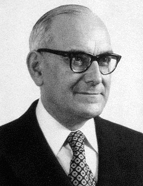

These publications, resulting from his work as an academic, situated Marcelo Caetano among the authors who studied municipalism (mainly the origins of medieval municipalities), such as Alexandre Herculano, Teófilo Braga, Alberto Sampaio, Torquato de Sousa Soares and Paulo Merêa, among others. He distanced himself from them, however, namely Herculano, as regards the Roman origins of medieval municipalities. He stated that, due to social circumstances and the surroundings, "the vestiges of Roman municipal institutions preserved at the end of the Visigothic monarchy disappeared during Muslim rule, and were also not retained in the kingdom of Asturias" (História do Direito Português, Fontes direito público: 1140-1495, 1981, p. 221). Abreast of the issues surrounding municipalism, this period also marked the beginning of his interest in constitutions. His Manual de Ciência Política e Direito Constitucional (Handbook of Political Science and Constitutional Law, 1952) and Breve História das Constituições Portuguesas (A Short History of Portuguese Constitutions, 1965) demonstrate his study of Political Law and the history of constitutionalism.
Colonial issues returned to the spotlight in this work, possibly resulting from the experience he gained in the positions he held, but also from his own thinking on these subjects. As an example, we can highlight publications such as Do Conselho Ultramarino ao Conselho do Império (From the Overseas Council to the Council of the Empire, 1943), Antologia Colonial Portuguesa (Portuguese Colonial Anthology, 1946) and As Campanhas de Moçambique de 1895 segundo os Contemporâneos (The Campaigns of Mozambique in 1895 According to Contemporaries, 1947). The introduction he wrote for the latter work was somewhat significant, as he again focused on the international aspect of the colonialism, a matter he would develop further in a later study: “the campaigns of 1895, in Mozambique, are one of the pivotal moments of contemporary Portuguese history. They demonstrated, on an international level, our ability to effectively occupy the colonies,” (p. 5).
The 1947 government reshuffle dictated Marcelo Caetano's temporary removal from the government (due to tensions within the União Nacional) and some of his choices for seats of government. Nonetheless, he became Minister of the Presidency in 1955. He first occupied the position of head of the Executive Committee of the União Nacional, and then went on to the presidency of the Corporate Board until 1958.
